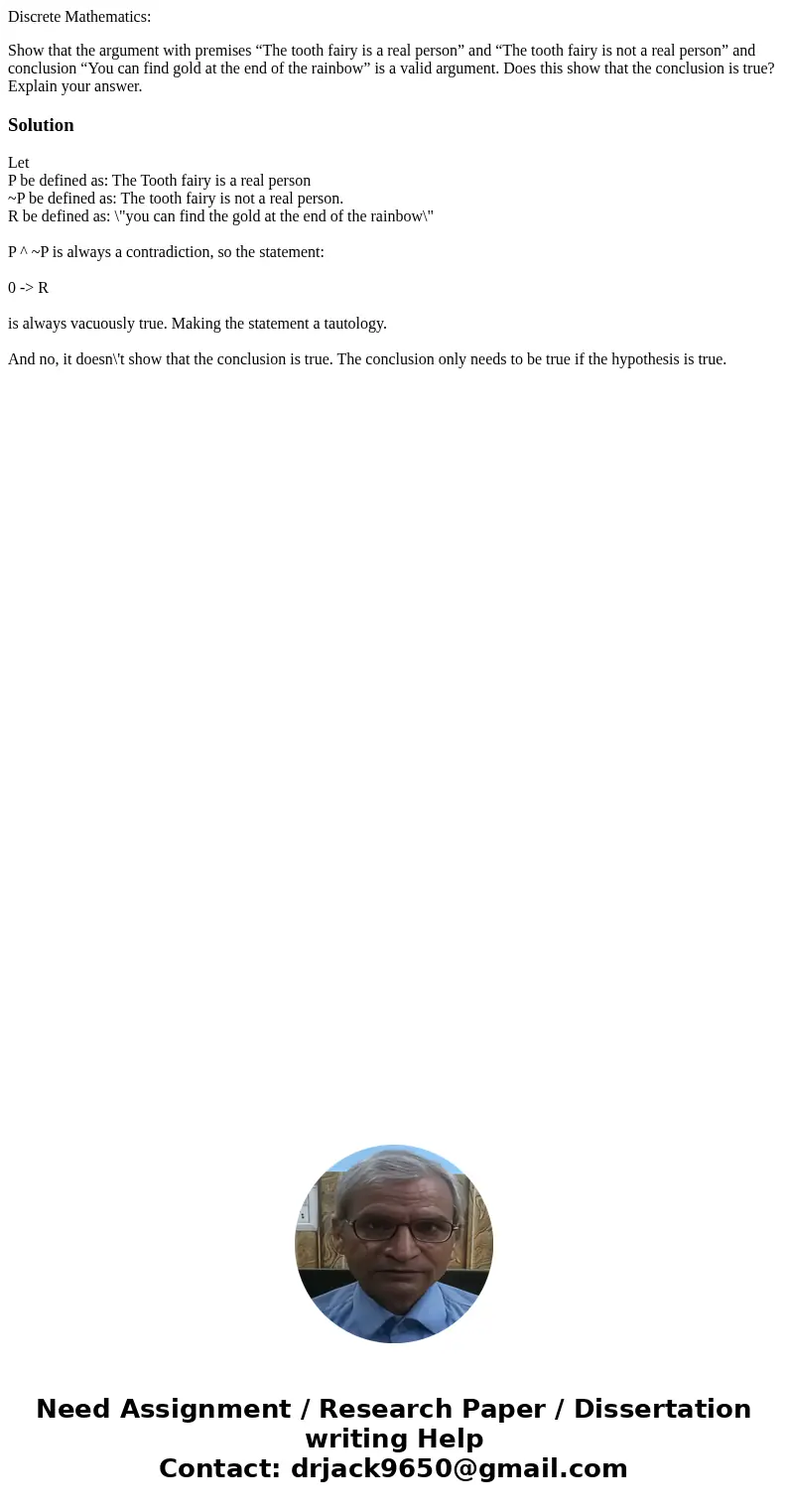Discrete Mathematics Show that the argument with premises Th
Discrete Mathematics:
Show that the argument with premises “The tooth fairy is a real person” and “The tooth fairy is not a real person” and conclusion “You can find gold at the end of the rainbow” is a valid argument. Does this show that the conclusion is true? Explain your answer.
Solution
Let
P be defined as: The Tooth fairy is a real person
~P be defined as: The tooth fairy is not a real person.
R be defined as: \"you can find the gold at the end of the rainbow\"
P ^ ~P is always a contradiction, so the statement:
0 -> R
is always vacuously true. Making the statement a tautology.
And no, it doesn\'t show that the conclusion is true. The conclusion only needs to be true if the hypothesis is true.

 Homework Sourse
Homework Sourse